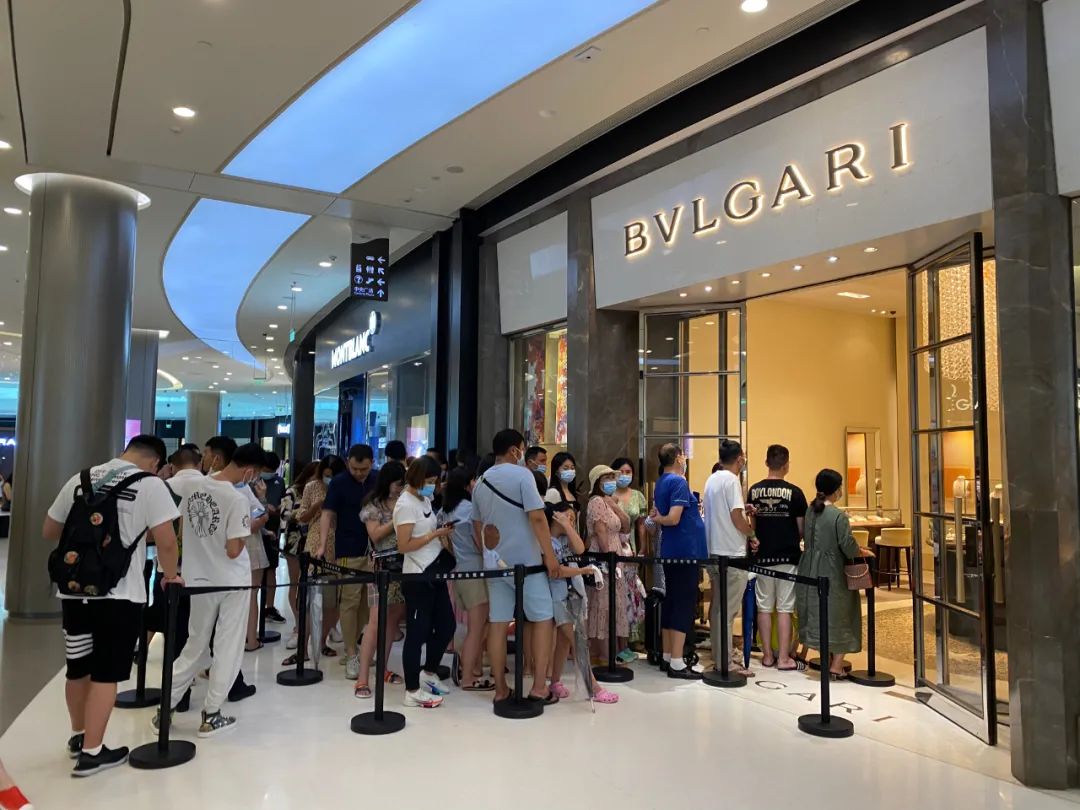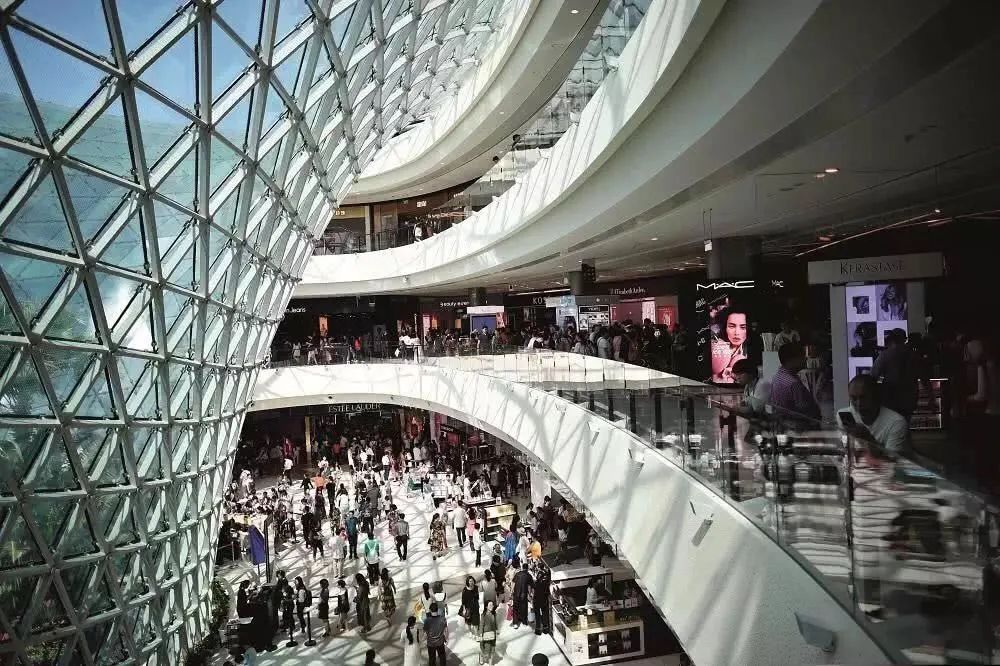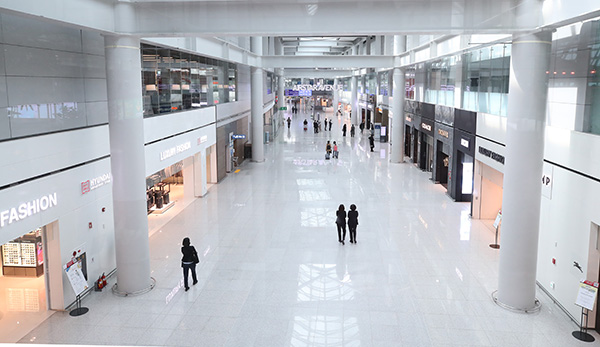Eyes on Hainan Duty-Free: Why Travel Retailers Should Pay Attention to this Rising Sales Channel
by Davy Huang & Queenie Yao
The COVID-19 pandemic brought global travel to a standstill. Now duty-free shops are re-emerging as influential retail destinations. Where the travel retail leaders’ contracts expired at the end of February 2021, Lotte and Shilla, these two largest duty-free shops in South Korea, will officially withdraw from the most important terminal at Incheon International Airport near Seoul. The global duty-free retailing market has been in crisis. In particular, sales at Incheon Airport duty-free shops plummeted by around 95%.
China's duty-free shops are in full swing compared to Korea's badly hit duty free shops. Look at these recent results from China’s Hainan Island. According to latest statistics released by the Hainan Provincial Department of Commerce, from 2021 February 11 to 17, Hainan's duty-free shops' seven-day sales exceeded 1.5 billion RMB ($231.2 million), including duty-free sales of about 1.4 billion RMB ($216.4 million). Sales doubled compared to the 2019 Spring Festival holiday, setting a new high for Spring Festival holiday sales in Hainan duty free shops. In this article, we take a dive into the travel retail sector in China, and how brands and travel retailers could benefit.

Long queues at Bulgari's store. Source: ThePaper.cn
Chinese consumers’ offshore travel expenses dropped significantly
Over the past 12 months, the global travel retail industry suffered a historic decline due to the worldwide pandemic. Most of the world’s popular travel destinations, which Chinese travellers normally visit and go shopping, local duty-free stores, high streets, and shopping centers had seen a steep drop in Chinese travellers and sales.
Chinese consumers contribute to a significant portion to international duty-free revenue. In South Korea, over 90% of Korea's in-city duty-free shops come from Chinese customers, and Chinese daigou contributes over 60% of the sales, as CITIC Securities research report indicated. Daigou is when exporters from outside China purchase goods for consumers in China. As COVID-19 limited travels from China to Korea, local shops have suffered tremendously.
The coronavirus pandemic has extensive effects for the market. Several overseas duty-free operators such as Dufry Europe, Lotte Korea and Shilla have suffered a severe shrinkage in sales and a challenging business environment.
China is leading the recovery of duty-free retail
With the global duty-free industry in the doldrums and sluggish growth, China's duty-free sector has emerged as a "dark horse" in the industry, relying on the return of overseas consumption and the policy dividends. Since the pandemic started, earches on luxury shopping platforms, such as “China duty-free,” are also quickly ascending, as overseas consumption was held back home.

Travellers shop at Begonia Bay International Duty-Free in Sanya, Hainan. Source: Xinhua Net
We categorize travel retailers into different types: offshore, near-shore, and on-shore.
1. Offshore travel retail lost the majority of revenue from its Chinese customers. We refer to offshore travel retailers as airport duty-free stores, city centre duty-free stores, shopping malls, and outlets.
Airport duty-free stores have experienced a significant decline in traffic due to the 14-day mandatory quarantine – no one-day travel from China, and many shops are running deep discounts to clear their inventory. In the past few years, sales were robust and many retailers bumped up their inventory for 2020, which put a huge burden on retailers’ cash flow. They were mainly distributing via the grey market to business-to-business (B2B) buyers, with products entering the market via daigou, domestic e-commerce platforms, and some cross-border sellers.
In 2021 we forecast that these duty-free operators will reduce their inventory to prevent product pile-ups, and they will be more cautious in introducing new brands and products. They still have strong bargaining power over brands because of their strong distribution network. They will continue to rely on their B2B sales channels to supply Chinese marketplaces and resellers in the short term.

Few people in duty-free shops at Incheon International Airport Terminal 1
Source: visual. people.cn
2. Near-shore refers to Hong Kong, and Macau is slowly recovering. Hong Kong has still not opened up its border because the COVID-19 situation has not improved. Domestic retailers are betting on e-commerce and online-to-offline (O2O) services, such as Mannings under Dairy Farm and Sasa, which are launching domestic e-commerce and even Hong Kong O2O services. However, their progress is still slower than China's domestic market. Hong Kong retailers are very aggressive in embracing cross-border e-commerce, including launches on Tmall Global, JD, and their direct-to-consumer channels via WeChat.
Hong Kong is a big market due to free imports and better pricing due to the exchange rate. Yet, the sales are still cross-border, which means duties at China customs and many value restrictions. It's not comparable to the business environment before COVID-19 – but it is slowly recovering.
3. On-shore refers to Hainan free-trade duty-free stores that have seen sales soar. The growth in retail sales in Hainan is tremendous. As China Duty-Free Group's annual report indicated, its preliminary results for FY2020 showed revenues rising by 8.1% YoY to RMB52.6 billion (US$8.1 billion). The company recorded a 32.1% leap in net profit to RMB6.1 billion (US$947 million). In the next 2-3 years, Hainan will continue to benefit from the government's domestic consumption support and be a major player in on-shore duty travel retail. Why not? DFS Group has established a long-term partnership with Shenzhen Duty-Free Group, which has been awarded a licence to operate an offshore downtown duty-free store in Hainan. DFS will partner with Shenzhen Duty-Free Group to establish a world-class duty-free retail experience for visitors in Haikou Mission Hills, a resort that opened in Hainan in February.
City center malls are turning online and many are becoming more open to the idea of e-commerce. Duty-free shops are also seeing online platforms as a critical strategy for growth. Last August, China National Service Corporation (CNSC) celebrated the grand opening of its new-look downtown duty-free store in Hangzhou, the Zhejiang province's capital. As the first city centre in Zhejiang, CNCS Hangzhou offers an online store for customers to select and make their purchases, and the products will be shipped to the customer's designated self-picked address.
As reported, some cities, including Tianjin, Chengdu and Wuhan, have officially announced that they will strive to open duty-free shops in their cities this year. The pandemic is an accelerator of the convergence between online and offline business. That’s why we expect to see more retailers accelerate their digital focus and online-to-offline integration.
How to win over Chinese consumers to boost e-commerce sales
Use these best practices to fuel online growth:
First, companies must think with a digital mindset. They focus on traditional KPIs such as exposures, views, visitors, and sales; some are very cautious about each marketing campaign's ROI. This approach is not working anymore for e-tailers, as the numbers they should watch are daily active users (DAU), monthly active users (MAU) and retention rate.
It's undeniable that retail companies can no longer obtain cheap traffic as they did via online and offline travel agencies. They can reach customers via marketing campaigns and calls-to-action to retain them for future communications. Companies can do this through the WeChat ecosystem, China's most popular social media platform, which leverages WeChat Groups, WeChat Work, mini-programs and personal accounts to connect companies and consumers.
Launching D2C sales channels is strategically important to retailers. Marketplaces welcome multi-brand retailers such as travel retailers. However, the operations don't add much value to retailers because retailers cannot obtain customer information, they have limited, costly methods to reach users directly, and many restrictions on what to sell.
Livestreaming is still an exemplary method for travel retailers to connect with consumers. Take CNSC Hangzhou, for example. It launched a livestreaming session on its WeChat mini-program to celebrate the Chinese New Year Festival, featuring 20+ beauty brands. The livestreaming session included two rounds of lucky draws and gift-giving as entertainment for viewers. Livestreaming makes e-commerce exciting, as customers can have real-time communication with travel retailers.
Key takeaways
The China Office and the State Office have recently issued the Action Plan for Building a High Standard Market System, which proposes to improve policies to guide the return of overseas consumption, encourage the establishment of many other departure tax refund shops in key cities, and increase the number of towns and duty-free shops on Hainan's outlying islands.
It is understood that cities such as Shanghai and Shenzhen will also actively seek to secure in-city duty-free policies to create high-end duty-free consumption centres. If this happens in 2021, it will have a profound impact on energizing China’s duty-free market.